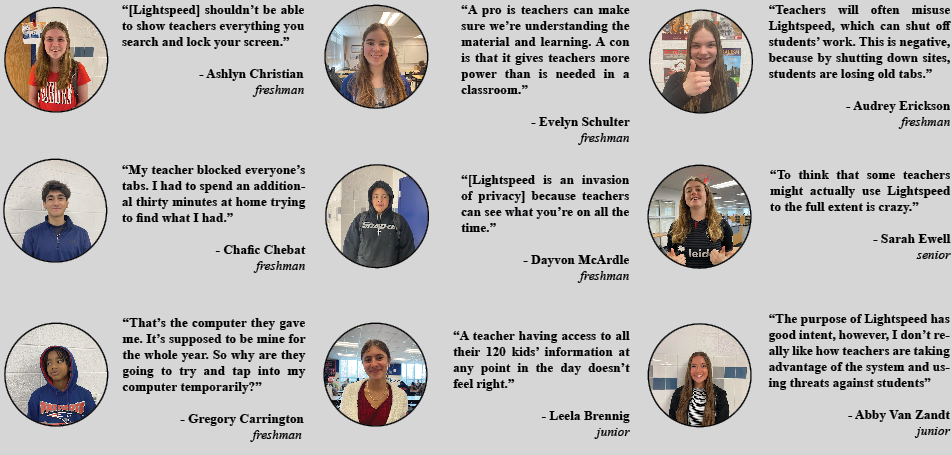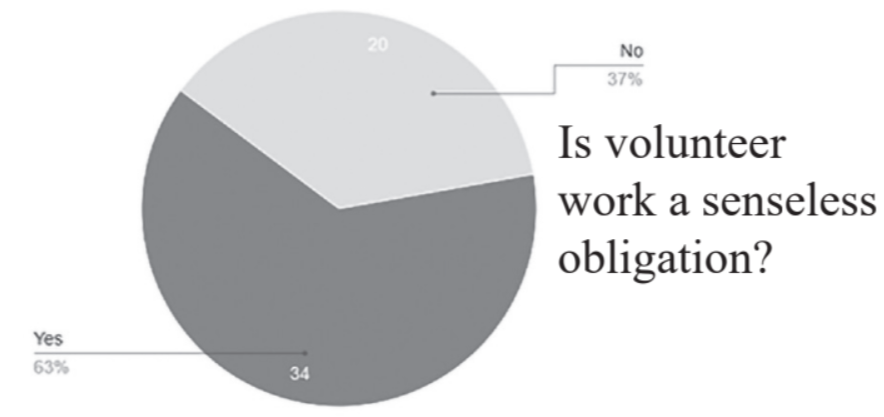
Thanksgiving
By Blythe Steahly, ETC. Editor
WS students report being thankful for Thanksgiving for creating traditions, bringing families together, and serving as a major event for avid shoppers with Black Friday occuring the day after.
Though some can argue that the history can be problematic, the holiday has progressed into a celebration of being grateful for one’s life.
“Thanksgiving can be offensive to Native Americans, if you look at it historically, but it’s more to do with family now,” said junior Hannah Luger.
The holiday was first celebrated by the Pilgrims with the First Harvest in 1621. Though, it did not become an official holiday until the time period of the Civil War, with Abraham Lincoln’s Thanksgiving proclamation, in order to invoke nationalistic feelings in a divided country. The historical significance, while being behind the creation of the holiday, is no longer the focal point, leading to the conclusion that the holiday is no longer relevant. Despite this, students cite Thanksgiving as gaining newfound sentiment each year.
“Thanksgiving is more about just being grateful for what you have and spending time with loved ones than the history that is actually behind it,” said junior Fernando Tapia.
Many students also participate in fun traditions such as traveling to see family who live out of state every year.
“Every year either my family and I go down to South Carolina to see family or they come up to Virginia. I enjoy having this every year to look forward to as it is something to look forward to, knowing that the majority of the time, I get to travel down there during the fall,” said junior Ellie Barnett.
Since the holiday is based on thankfulness and patriotism as opposed to religious roots, it allows people of all backgrounds to celebrate.
“I think because the holiday in its modern practice is not associated with religion, it’s more universally celebrated by Americans than other holidays,” said senior Madison Abicht.
The holiday also has many other factors that add to the fun, such as the madness that is the day after. The Friday after Thanksgiving many people rush to the store and online to grab major deals on their desired items.
Overall, Thanksgiving is a central point of American culture that brings joy to many during the winter season.
Thanksgrieving
By Maya Pope, Viewpoint Editor
With Thanksgiving season approaching, many Spartans have been anticipating spending time with family and friends and feasting on turkey. However, feelings of uncertainty have arised within students as the holiday’s controversial and devastating history has students second-guessing whether or not it is truly worth celebrating.
“I’m mainly against Thanksgiving because it’s celebrating a genocide of Indigenous people and how we stole this land,” said senior Lilly Steinau.
What many people who annually celebrate Thanksgiving are oblivious to is the contentious and bloody history of the holiday. The origins of Thanksgiving date back all the way to the year 1621, when thousands of Native Americans died from disease at the hands of European colonists. The watered-down version of the Thanksgiving origin story that many people are taught in elementary school often overshadows the real and raw history of the holiday. Students should be taught the truth about Thanksgiving instead of the pseudo story that has been taught in schools for years.
“I’m not saying [we should] show children all of the horrors of what happened, I’m saying not to build up that sort of belief in their heads,” said sophomore Afrahna Faruky.
As students have gotten older, they have realized what they were taught in their early years was only half of the story.
Despite the controversy, Thanksgiving unfortunately remains a popular holiday, as a survey with 71 WS students had more than half say they were supportive of the celebration of Thanksgiving.








